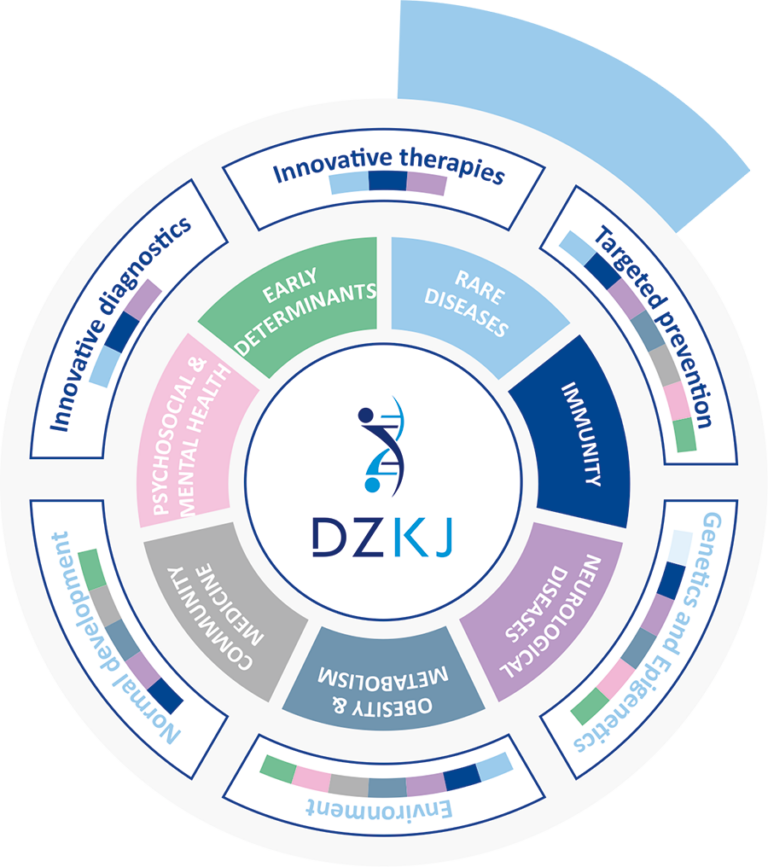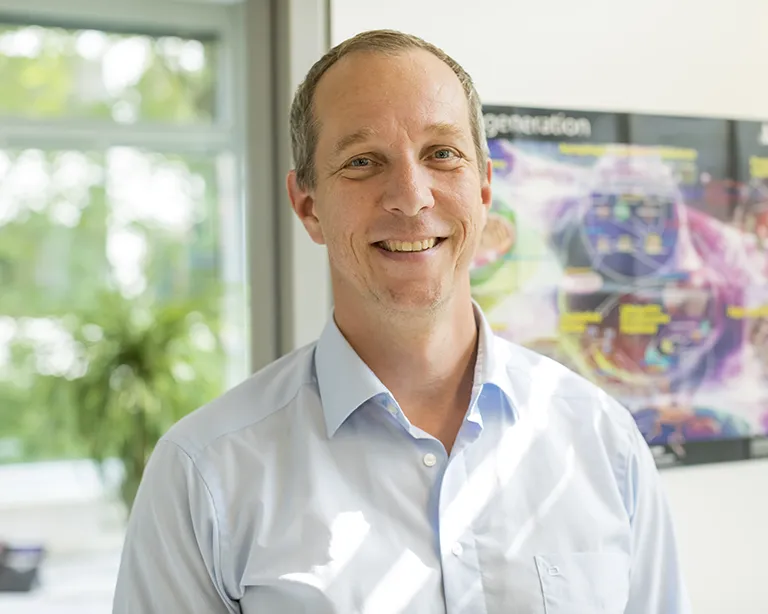Rare Genetic Diseases
Healthy children and adolescents through science – for a better life
Rare Genetic Diseases
Healthy children and adolescents through science – for a better life
Background
In Germany, rare diseases affect over four million people, including more than three million children and adolescents. To date, around 7,000 rare diseases have been identified, with approximately 80% of these being genetic in origin. Children and adolescents with rare diseases make up as much as 70% of inpatient admissions at university pediatric departments, highlighting a significant unmet need for medical interventions in pediatric rare genetic diseases. Despite this need, our understanding of disease mechanisms and treatment options for many of these conditions remains limited.
Key aspects of research
Recent advances in genetic diagnostics, multi-omics technologies, patient-derived model systems, as well as therapeutic interventions—including small molecule therapies and gene editing—have opened new avenues for understanding and treating rare diseases. These breakthroughs offer unprecedented opportunities to uncover disease mechanisms and develop targeted therapies for young patients with rare genetic disorders.

Objectives
The Rare Genetic Diseases research initiative will establish a translational research program across all DZKJ sites, combining clinical expertise and large patient cohorts. Our goal is to identify the causes of rare genetic diseases and significantly improve diagnosis as well as care for affected children and adolescents. To achieve this, the program will employ multi-omics and systems medicine approaches to accelerate the discovery and development of therapies for rare genetic diseases along the entire translational pipeline. In the long term, our vision is to provide molecular diagnosis and targeted therapy for every child suffering from rare genetic diseases. To ensure comprehensive and continuously evaluated care, a close collaboration with the research fields of Psychosocial Health, Mental Health, and Community Medicine is planned. We anticipate that findings from studies on rare genetic diseases will not only decode disease mechanisms and risk factors but also contribute to the development of new therapies for complex common diseases in children and adolescents.
Contact Persons

Peter Kühnen
Rare Genetic Diseases
Charité – Universitätsmedizin Berlin

Prof. Dr. rer. nat.
Stefan Bonn
Multi-Omics, Biobanking
University Medical Center Hamburg-Eppendorf

Dr. rer. nat.
Holger Prokisch
Genetics, Genomics
TUM Klinikum & Helmholz Munich
